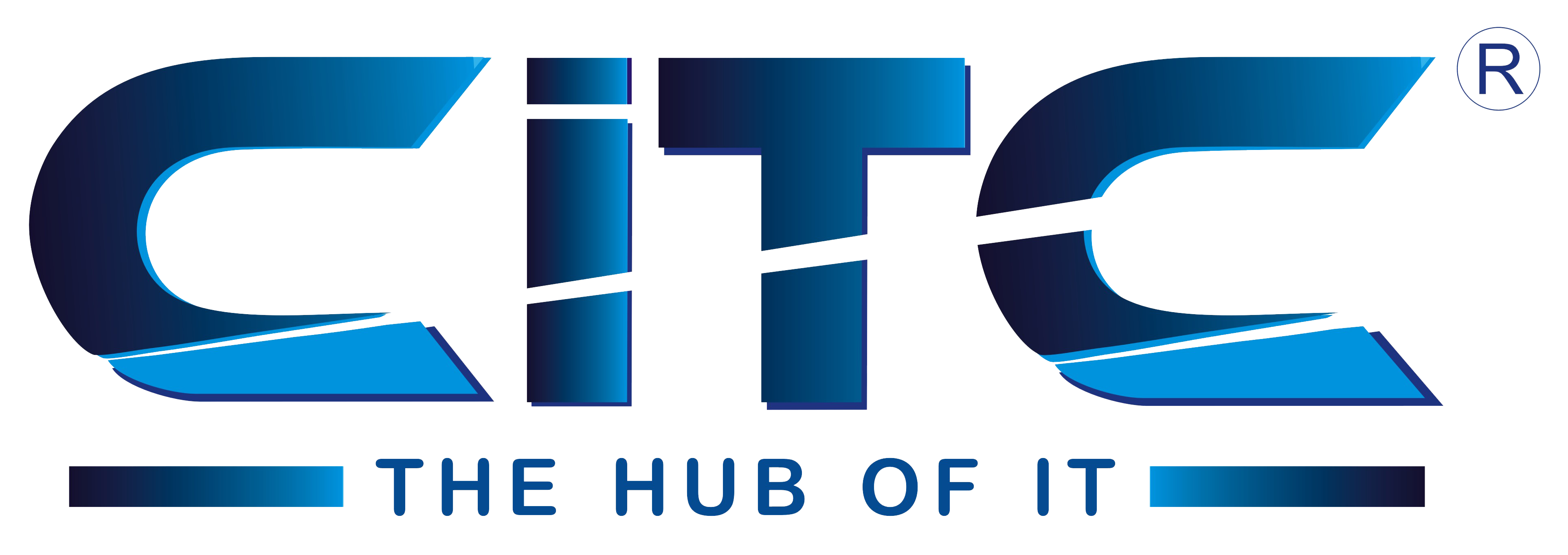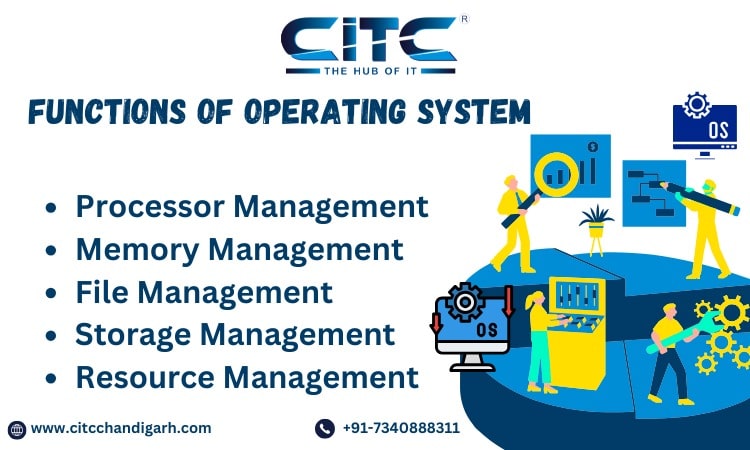An operating system (OS) is the fundamental software that manages a computer’s resources and provides a platform for applications to run. It acts as a bridge between the hardware and software components of a system, facilitating communication and interaction between them. Having knowledge about functions of operating system can be a game changer for your career. CITC-The Hub of IT is providing its web development course where you can learn about various operating systems along with their functions .
Need for Operating System:-
1.Hardware Abstraction: An OS hides the complexities of hardware from applications, making it easier for developers to create software.
2.Resource Management: It efficiently allocates and manages system resources like CPU, memory, storage, and I/O devices.
3.Multitasking: Allows multiple applications to run properly.
4.Security: Provides mechanisms to protect the system from unauthorized access and other activities.
5.User Interface: Offers a user-friendly interface for interacting with the computer.
Functions of Operating System:-
Processor Management:
a)Scheduling: Determines the order in which processes will be executed on the CPU.
b)Dispatching: Transfers control of the CPU to the selected process.
c)Context Switching: Saves the state of one process and loads the state of another when switching between processes.
Memory Management:
a)Allocation: Assigns memory space to processes and data structures.
b)Deallocation: Reclaims memory space when processes are no longer in use.
c)Paging: Divides memory into fixed-size pages and swaps them between main memory and secondary storage.
d)Segmentation: Divides memory into logical segments based on program structure.
File Management:
a)Creation: Creates new files and directories.
b)Deletion: Removes files and directories.
c)Manipulation: Opens, closes, reads, and writes files.
d)Organization: Stores files in a hierarchical structure.
Storage Management:
a)Disk Scheduling: Determines the order in which disk I/O requests are serviced.
b)Disk Formatting: Prepares a disk for data storage.
c)File Allocation: Allocates disk space to files.
Resource Management:
a)Device Management: Controls the operation of input/output devices.
b)Deadlock Prevention: Avoids situations where processes are waiting for resources that are held by other processes.
c)Security Management: Enforces access control policies and protects the system from threats.
The operating system plays a vital role in the efficient and secure operation of a computer system. Understanding the different functions of an operating system is essential for anyone working in the field of information technology. The OS must balance competing demands from multiple processes, ensure efficient allocation of hardware resources, and safeguard the system from cybersecurity threats. It also provide a user-friendly interface that allows users to interact with the computer without needing to explore into the complexities of underlying hardware and software components. With CITC-The Hub of IT you can gain a deep understanding of operating system concepts and develop the skills needed to manage and optimize computer systems effectively. Let us accompany you with your WEB DEVELOPMENT course with CITC.






